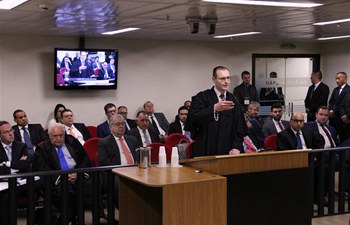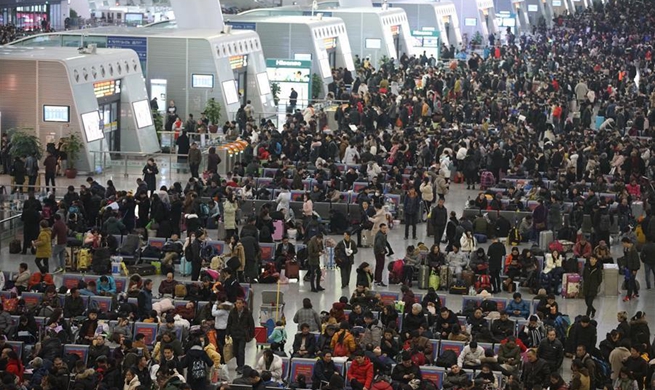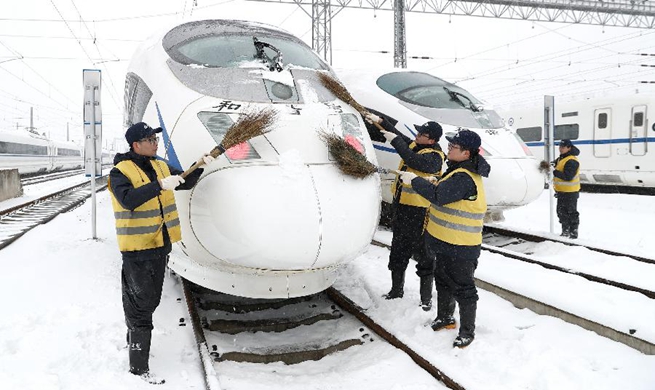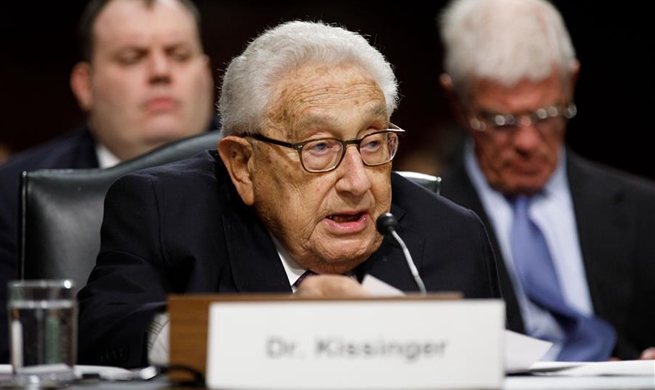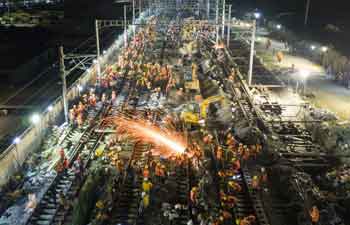BEIJING, Jan. 25 (Xinhua) -- While approaching his destination, a downtown restaurant, Jin Gen grabs his smartphone, opens an app and drives to a shopping mall basement parking zone as directed.
"With the app, I can park my car as close as possible in just a short time," he said.
Zhang, who lives in Beijing's suburban Tongzhou District, often found it difficult to park his car after driving downtown, until a friend told him about parking apps.
"The apps can instantly tell me about nearby parking zones, as well as how many open spots they have -- 'plenty,' 'few,' or 'full,'" he said.
He said some apps also offer electronic coupons to encourage people to pay their parking fees with their mobiles, which has saved him a lot of time queuing at the exit.
Dozens of parking apps, such as U-parking and ETCP, are available in Beijing.
According to China Communications and Transportation Association, there were 4 million parking spaces in Beijing as of April 2017, far fewer than the number of vehicles in the city, which is approaching 6 million.
"It's obviously not practical to build that many parking spaces given the limited land in downtown Beijing, so the key is to encourage a 'parking lot sharing' concept with the help of smartphones," said Li Xin, a Beijing political advisor.
At the ongoing first session of the 13th Beijing Municipal Committee of Chinese People's Political Consultative Conference, Li proposed that the government offer a unified data-sharing platform for these apps, as well as preferential policies including subsidies.
"The current financing channels and embedded advertising are surely not sustainable for these apps," she said.
Zhou Zhengyu, director of the Beijing municipal commission of transport, echoed Li's view, saying a unified platform backed by the government would save users from downloading multiple apps.
Zhou, also a political advisor for Beijing, advised shopping centers, hospitals and other public institutions to open their parking venues to the public in the evening so that nearby residents could park their cars after work.
Around 1.3 million cars have no proper parking space in residential communities in Beijing, according to a recent survey conducted by the commission.
Zhou said an office building managed by a Hong Kong company had provided overnight parking services in Dongcheng District, charging them 300 yuan (47 U.S. dollars) per car per month.
"Hundreds of parking lot units have been supplied for nearby residents after work," he said.
Both Li and Zhou have advised residential communities to share their parking spaces with nearby office workers during the daytime, although residents have expressed safety concerns.
"Parking space sharing attracts strangers, putting the elderly and children back home at risk during the day," said Jin.
Zhou said technology, including facial and vehicle plate number recognition, would address the problem, and a deposit should be required from office workers to compensate for any damage caused by their cars.
The municipal legislature reviewed a draft parking regulation of the city for a third time late last year, including the terms of parking space sharing among residential areas and public institutions.
The regulation is expected to take effect this year, according to Zhou.






